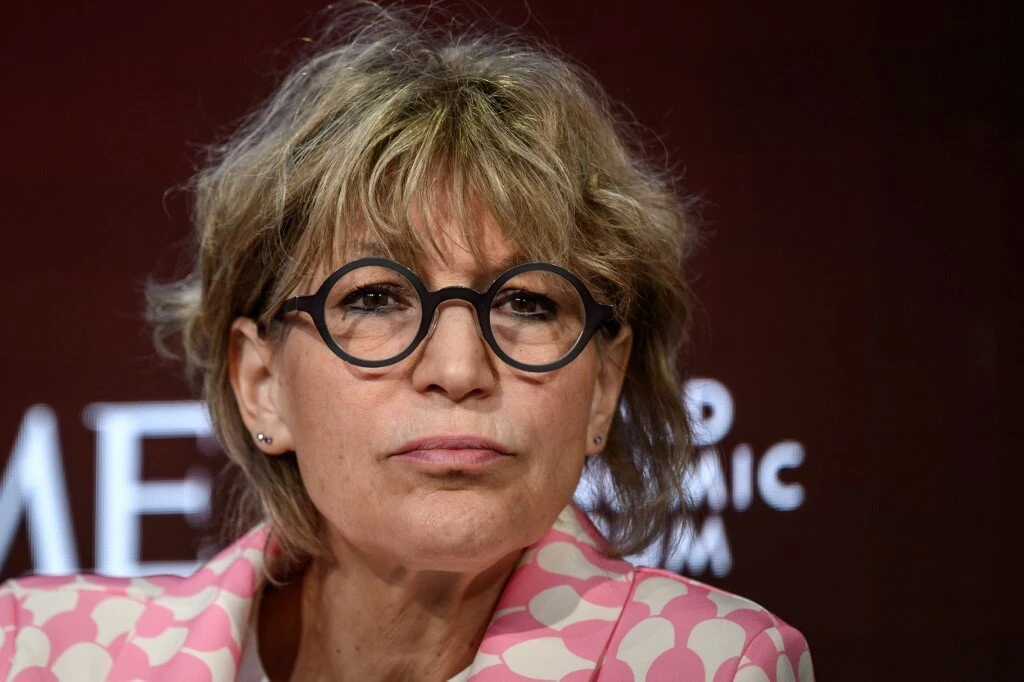As the world becomes increasingly complex, there are growing concerns about the role of NGOs and their connections to powerful corporate groups and organizations. Many believe that NGOs have become infiltrated, with their agendas hijacked to promote the interests of these powerful entities. In this article, we will take a closer look at Amnesty International, a globally recognized NGO, and examine the controversies surrounding its policies and leadership,
Join us as we delve deeper into the potential implications of these connections and the challenges they pose to the integrity of NGOs and their mission. Amnesty International was founded on the principles of promoting and defending human rights, including the right to freedom of expression. This right is enshrined in Article 19 of the Universal Declaration of Human Rights, which states that “everyone has the right to freedom of opinion and expression; this right includes freedom to hold opinions without interference and to seek, receive and impart information and ideas through any media and regardless of frontiers.”
Amnesty International was founded in 1961 by Peter Benenson, a British lawyer and human rights activist. Benenson was inspired to create Amnesty International after reading a newspaper article about two Portuguese students who were arrested and imprisoned for raising a toast to freedom. Like many classical liberals of his day, he was passionate about the rights of freedom of expression and the dangers of totalitarian regimes. Regrettably, as the left has increasingly embraced a more authoritarian and dogmatic stance, numerous NGOs, including Amnesty International, have followed suit and become more totalitarian in their approach.
One of the other founding principles of Amnesty International is the importance of maintaining an independent, impartial stance with regard to political and social issues. This principle is grounded in the belief that human rights abuses can and do occur in all societies, both on the left and right and that it is the duty of Amnesty International to investigate and report on such abuses regardless of political affiliations or other partisan considerations. To this end, the organization established strict guidelines for its research and advocacy work, including a commitment to factual accuracy and a rigorous vetting process for all information sources. The goal of this approach was to ensure that Amnesty International’s work is perceived as credible and trustworthy by all parties, regardless of their political beliefs or affiliations.
Amnesty International has seemingly abandoned its neutral stance in favour of a fervent embrace of progressive values. From endorsing abortion and sex work to advocating for LGBT rights, the organization’s once-unbiased approach has now become heavily tinged with its own personal views. While it is commendable to support marginalized groups, Amnesty International should also uphold its commitment to impartiality by providing equal support to those who hold opposing views who find themselves persecuted. Moreover, the organization’s views on controversial matters should remain undisclosed, with the sole commitment being to support individuals’ right to express them.
Amnesty International’s stance on expressing strong opinions is concerning, as they classify opposing views as hate speech – a tactic employed by totalitarian regimes. This undermines their founding principles and raises questions about their commitment to freedom of expression. The expression of religious or moral beliefs, usually stated calmly, is increasingly met with intolerance by Amnesty International. The issue of abortion, for example, presents a complex moral debate where one can argue for the mother’s right to choose while simultaneously defending the unborn’s right to life. This is a debate that requires nuance and compassion, not the stifling of opposing viewpoints.
There was no support from Amnesty International for Ms Vaughan-Spruce a Catholic pro-life supporter arrested on December 6 2022 for merely silently praying outside BPAS Robert abortion Clinic in Kings Norton.
Amnesty International’s stance on gender identity and the inclusion of transwomen has caused controversy as it seemingly disregards the rights of biological women in areas such as sports competition. While promoting inclusivity and acceptance is important, it is essential to also consider the physical differences between those born biologically male and female in such situations. Many women who have spoken out about this issue have received punishments which violate their free speech such as Blake Allen.
The recent direction of Amnesty International is unsurprising when we look at the experience and associations of its leadership.
Agnès Callamard, Secretary General of Amnesty International has been involved in several initiatives and events organized by the World Economic Forum (WEF), a non-profit organization that brings together leaders from the public and private sectors to address global challenges and promote economic growth. The WEF is often accused of having too much influence on global policy-making. Critics argue that the organization is too closely tied to political and economic elites and that its recommendations often reflect the interests of those elites rather than the broader public. Many of the WEF’s proposals promote a vision of a future technocracy and transhumanist culture. That increases the control of the global elites and reduces the privacy and freedom of expression of the general public.

Callamard was one of the signatories to an open letter published by the WEF in 2019, which called on governments and business leaders to take action to combat hate speech and other forms of online extremism. The letter was endorsed by a range of prominent individuals and organizations, including the United Nations and the European Commission. The letter totally went against Amnesty International’s founding values of freedom of speech and expression with its recommendations on content moderation and censorship.
In 2021, Callamard participated in the WEF’s annual meeting, where she ironically spoke on a panel titled “Restoring Trust in Human Rights: Perspectives from the Frontline.” If she wants to restore trust in amnesty international and herself as an advocate of human rights she should not be associating with a group associated with a vision for technocracy and transhumanism, the very antithesis of human freedom.
She also contributed to a report on “Reimagining Digital Identity” which was produced by the WEF and a group of global experts. The report advocates for a centralized digital identity system, which has raised concerns among genuine privacy advocates. Critics argue that a centralized system could be vulnerable to security breaches and could lead to the concentration of power in the hands of a few entities. The report’s emphasis on public-private partnerships in the development of digital identity systems would also lead to further corporate control of the system. This could result in the exploitation of personal data for commercial gain, again of benefit to the elites but not for the people. The report’s recommendations would also lead to increased government intrusion. Amnesty International often campaigns under the guise of being against surveillance culture and yet it supports so many initiatives that fly in the face of this objective.
The Chief Executive of Amnesty International UK, Sacha Deshmukh has also had a career with connections that further questions his alignment with Amnesty International’s claimed core values. Sacha Deshmukh worked at the Clinton Foundation from 2006 to 2008 as the Director of Special Projects. The Clinton Foundation has faced criticism over the years regarding its fundraising practices, potential conflicts of interest, and allegations of favouritism towards donors. With allegations of donations for influence scenario. Donations have come from repressive states such as Saudi Arabia, Kuwait, Qatar, United Arab Emirates (UAE) and Algeria. With questionable companies such as Uranium One, Goldman Sachs and UBS.

Sasha left the Clinton Foundation to join the controversial electronic voting company Smartmatic. He served as the Chief Operating Officer (COO) of Smartmatic from 2008 to 2011. As COO, he was responsible for overseeing the day-to-day operations of the company, including its finances, business development, and strategic planning. During his tenure at Smartmatic, the company expanded its presence in several countries and developed new technologies for voting and identity management.
Smartmatic has come under repeated scrutiny over its elite connections with accusations of manipulated election results through its technology in countries such as Venezuela and the Philippines. In 2005, Smartmatic had acquired Sequoia Voting Systems, a California-based voting technology company that had previously supplied election equipment to a number of U.S. states. However, in 2007, Smartmatic was forced to divest Sequoia due to concerns about foreign ownership of companies involved in U.S. elections. In 2010, Canadian-founded company Dominion Voting Systems purchased Sequoia giving them greater access to the USA market and were allowed to operate in the USA elections despite their Canadian roots. Both the Smartmatic and Dominion takeover of Sequoia were advised by controversial banking giant UBS (Union Bank of Switzerland), known for their confidentiality and secrecy, who helped both companies to secure financing for their respective deals. In 2016 there was a court case between Smartmatic and Dominion voting systems whereby Smartmatic claimed that Dominion were using its software through its purchase of Sequoia. This was settled out of court.
One of the reasons I highlight the connection between Smartmatic and Dominion is that a recent area of human rights abuses in which amnesty international has been silent involves protestors against the 2020 election results in the USA. Whatever the veracity of their claims protesting about elections is nothing new. Following the 2000 Presidential Election, which was ultimately decided by a Supreme Court ruling in favour of George W. Bush over Al Gore, protests erupted in several cities across the country. Many protesters were upset with the way the election had been handled, particularly in Florida where there were questions about the accuracy of vote counting. Following the 2016 Presidential Election, which was won by Donald Trump over Hillary Clinton, protests erupted in several major cities across the country claiming Russian intervention. Amnesty has always supported the right to protest.
The 2020 election protests have been met with police crackdowns, biased media coverage, and disproportionate treatment of protesters. While some violent protestors may deserve harsh sentencing, many nonviolent individuals who followed the crowd and meandered into the Capitol Building have also been subject to mistreatment. Shocking reports have emerged from the incarcerated of solitary confinement, denial of medical care and even the loss of an eye. Free speech advocates like Elon Musk and even individuals on the left, who were against the protests, are now speaking out against the unfair treatment of those who were merely expressing their beliefs. Despite this, Amnesty International has remained silent on the issue, further evidence of its departure from its founding and core values. Sacha Deshmukh’s close associations with a company that has been accused of election fraud may have contributed to this silence.
Smartmatic are also involved in technology around the development of smart cities and the introduction of digital identity cards and authentication systems which many critics also see as violations of human rights and part of a move towards a totalitarian technocracy. The CEO at Smartmatic while Sasha was there was Antonio Mugica whose connections to the repressive Venezuelan state have led to many questions about his human rights credentials.
More recently Lord Mark Malloch-Brown served as the Chairman of Smartmatic from 2014 to 2019. Critics of Lord Malloch-Brown point to his close association with George Soros since the early 1990s. Some accuse Soros of using his wealth and influence to sway elections, political outcomes and legal procedures in his favour. Unsurprisingly Mark Malloch-Brown is currently the president of The Open Society Foundation (OSF) which is founded and funded by George Soros. It is the centre of a network of philanthropic entities advancing Soros’ vision of a global “open society” with expanded international migration and progressive values. Lord Mark Malloch-Brown like Soros is a regular attendee of WEF meetings and has contributed to many of their reports.
The Open Society has also made large donations to the Clinton Foundation and Amnesty International.

Comments